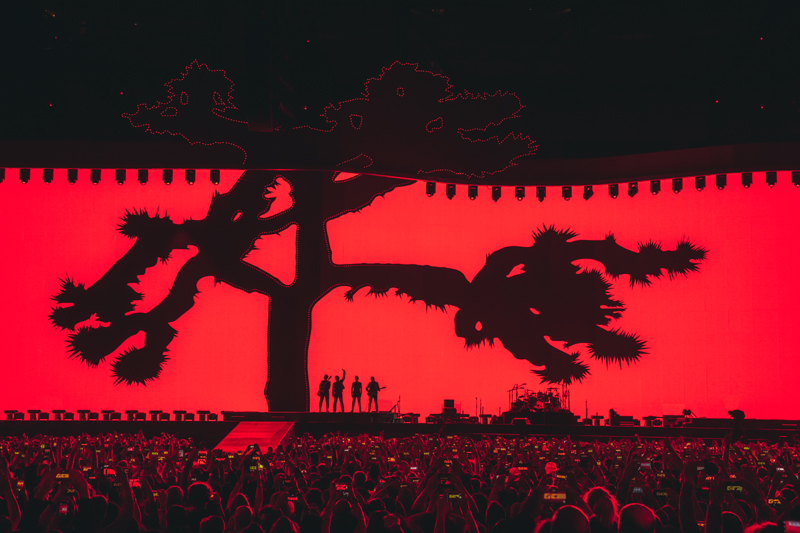Guest column: The roots of U2’s ‘Joshua Tree’

Courtesy: U2
By Joseph Ahorro
The themes of U2’s last album, 2014’s Songs of Innocence, and the subsequent Innocence + Experience Tour primarily highlighted the Irish band’s upbringing as youth on the north side of Dublin, and the artistic, social and political influences that ultimately shaped their music.
U2, Mumford & Sons
6:30 p.m., Wednesday
Levi’s Stadium, Santa Clara
Tickets: Sold out.
It is widely rumored that the follow up album, Songs of Experience and second part of the Innocence + Experience Tour will be revealed later this year or next.
As such, it is rather fitting that The Joshua Tree–the album that catapulted U2 into the pantheon of rock greats–is celebrating its 30th anniversary and is being toured in-between the two acts of Innocence + Experience.
Have a general admission ticket to U2 at Levi’s?
Credit card entry and the Tree stage
If you have a general admission ticket to U2 at Levi’s Stadium, you will enter with the credit card you used to make your purchase. Everyone in your party must be present, and you will need to go inside as soon as the card is scanned.
To avoid long line-ups, arrive when doors open. In Vancouver last week, the credit card ticket system crashed and left thousands of fans missing the opening act, Mumford and Sons. So come early and do some shopping while you wait.
When you make it onto the floor, you’ll have two general destinations: The main stage and a secondary “Tree” stage. U2 spends most of its time on the main stage in the middle of its set, performing The Joshua Tree there. But that stage is roughly 10 feet high. The show begins and ends at the Tree stage, which is only five feet high and provides the best views of the band.
When U2 last toured, in 2015, fans were treated to an array of songs and concert visuals that illustrated the nascent influences of this band, revealed how innocence can be shattered by traumatic life events, and consequently unleash a fierce reaction against injustices.
To varying degrees, U2’s early albums leading up to The Joshua Tree carry with them this thematic development. This is what makes The Joshua Tree Tour 2017 fascinating. The band has said that part of the reason why they want to perform The Joshua Tree in its entirety today is because of its contemporary relevance. In 1987, the critique was leveled against the world of Ronald Raegan and Margaret Thatcher. In 2017, U2’s concern is with the direction and views of Donald Trump and Theresa May, as well as the consequences of Brexit and the refugee crisis in the Middle East. In the concert, fans can expect to see subtle and overt critiques and commentary about the current state of world affairs, but they are not as over-the-top as past tours.
The beauty of U2’s music is that it is transcendental and can be interpreted beyond politics and into other spheres, such as the spiritual or personal and secular, which are also relevant to fans. A popular Joshua Tree song like I Still Haven’t Found What I’m Looking For can be interpreted as a conversation with God or a personal yearning for self-actualization.
The Joshua Tree Tour 2017 gives fans the chance to relive this milestone album performed live in running order; something U2 has never previously attempted. Indeed, this is the highlight of the concert. For 30 years, Joshua Tree songs have rooted themselves into the consciousness of society. While hits like With or Without You or Where the Streets Have No Name are commonplace on all U2 tours, other songs have rarely, if ever, made an appearance live. Exit, Trip Through Your Wires and Red Hill Mining Town are a real delight for longtime fans.
Follow guest columnist Joseph Ahorro at Twitter.com/joe_ahorro.
